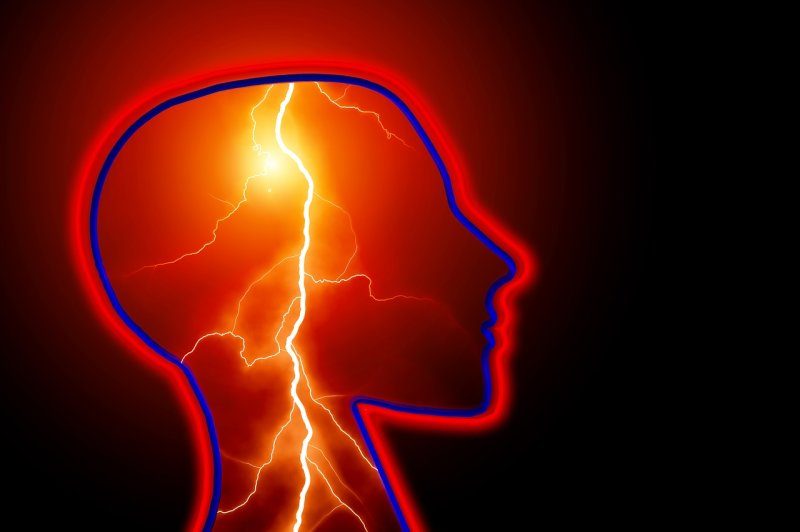University of California San Francisco researchers said in a paper published on Monday that studying recorded data of brain cycles can predict seizures in epilepsy patients. Photo by
geralt/Pixabay
Aug. 16 (UPI) -- For people with mental illness, focusing attention over long periods of time, distinguishing between two different things and processing information can be a challenge, a new study says.
Now, researchers say an electrical stimulation procedure may help people with severe mental illness to concentrate on cognitive tasks, according to research published Friday in the Journal of Neural Engineering.
In the past, the stimulation technique had shown effectiveness in helping patients sort through difficult tasks. But those results took place in a laboratory environment, not a busy real-world setting.
"Using the same neural signals that could drive adaptive deep brain stimulation, we have shown that it is possible to detect mental states that might be amenable to closed-loop control," Nicole Provenza, a researcher at Brown University and study lead author, said in a news release. "While further research is necessary to generalize our findings to real-world applications, we hope that this work will ultimately contribute to the development of more effective brain stimulation therapies for mental illness."
The research is a part of DARPA's SUBNETS program, which discovered that certain markers and formulas can detect when someone is focused and working hard to concentrate on a task. Provenza and her team figured that applying electric stimulation to a mentally ill person could ease the process of sorting out difficult things.
Since the act of focusing can take place in multiple parts of the brain, the researchers had to examine the entire cerebrum. Their goal was to discover how activity in one region of the brain interrelated with another.
The researchers say the results of their work is promising. And other studies have pointed to the effectiveness of electrical stimulation as a non-surgical alternative to treating mental illnesses such as depression.
Each year, about 1 in 5 adults in the United States has a mental illness episode.
"We want to take a patient-centered approach to treating mental illness," said Alik Widge, a researcher at the University of Minnesota and study senior author. "The job of a stimulator is not to take away the symptoms; its job is to help the patient manage his or her symptoms. It gives the power back to the individual and just gives them a little extra help when they need it."















